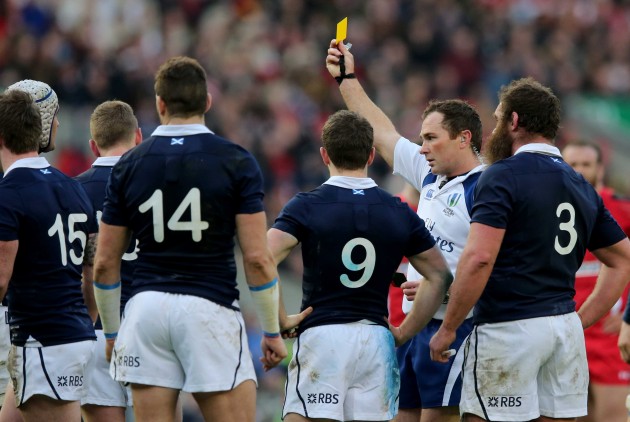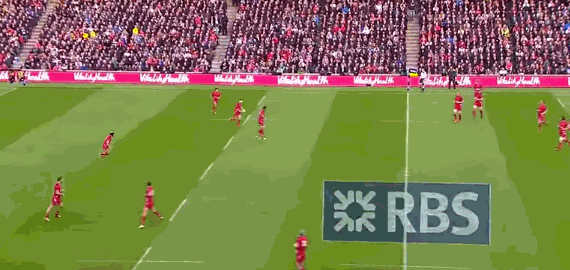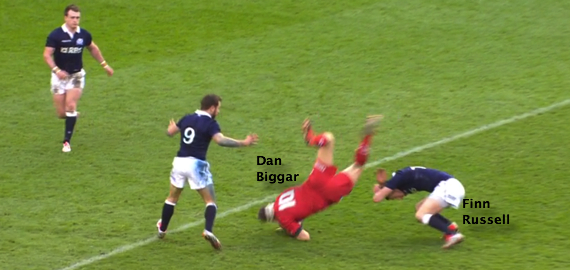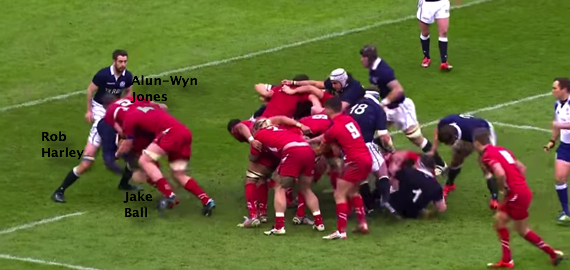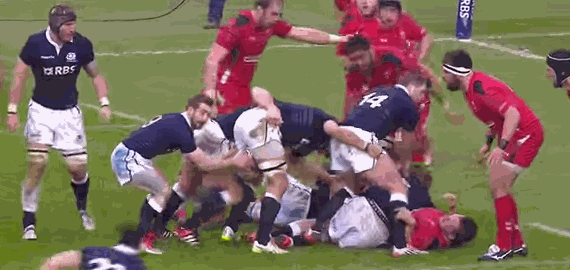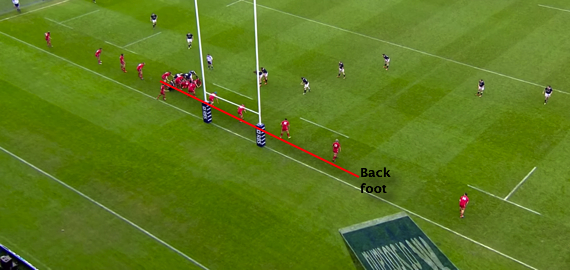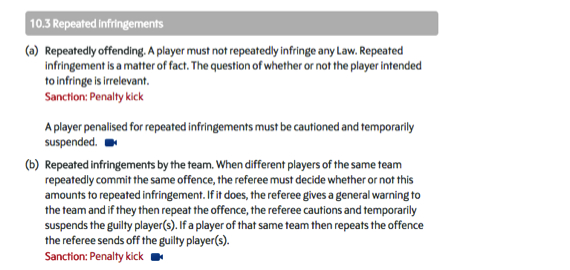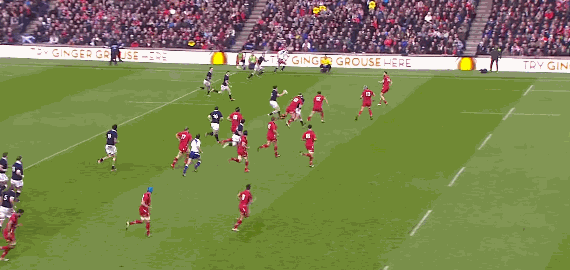Referee Glen Jackson came in for some criticism after Scotland's 26-23 defeat to Wales. We analyse six pivotal decisions from the New Zealander
Passions run high during the Six Nations. Tribalism and tradition dictate as much, which is a big part of the tournament’s intoxicating appeal. Consequently though, opinions run fast – and often loose.
The fall-out from referee Glen Jackson’s performance at Murrayfield was fairly disheartening. Following a 26-23 defeat for Scotland against Wales, a few social media protestations landed in irrational and attention-seeking territory.
One journalist suggested the tie would be the New Zealander’s first and last Six Nations assignment. Frankly, that is garbage. Having retired in 2010, the former Saracens fly-half (who had been a charge of Vern Cotter at Bay of Plenty) possesses innately intuitive empathy with the modern game and will keep progressing on the international stage.
There is no need to compromise honesty to preserve rugby’s oft-regurgitated values of respecting officials – Jackson was hampered by indecision in a dramatic finale – but hyperbolic criticism helps nobody. Like any relatively inexperienced player, he will review his performance, learn lessons and move on.
Let’s take a closer look at the pivotal calls that shaped Sunday’s encounter.
Scotland 10-6 Wales, 30 minutes: Finn Russell yellow card
Decision: Penalty to Wales following big screen referral, yellow card to Finn Russell.
Verdict: This moment was easily the most contentious in the match, and controversy was compounded on Wednesday with news World Rugby elected to ban Russell for two weeks – thus implying that Jackson’s ruling was wrong. Scotland have subsequently appealed the sanction. So you have a fair idea of how violently debate has been raging.
The infringement comes down to the fact that Russell pulls out of the aerial challenge and turns his back, therefore impeding and unbalancing Dan Biggar:
While it could have been worse, Biggar’s hugely awkward landing demonstrates how dangerous the situation is:
As the World Rugby statement outlined, these actions were “reckless rather than deliberate”. Though not contravening law 10.4 (i) – tackling the jumper in the air – on purpose, referees are accountable for player welfare regardless of intent.
What clouds the issue further are the directives passed down by World Rugby in the aftermath of Jared Payne‘s sending off for Ulster against Saracens after up-ending Alex Goode inadvertently but spectacularly. That incident, almost a year ago, put the responsibility on chasers to ensure catchers land safely.
Clearly, this is different because Biggar is coming forward and Russell is stationary. The Scotland man keeps his eye on the ball until relatively late, leaving no time to avoid his opposite man:
In short, Jackson has an extremely complex call to make. In the end, a sin-binning upholds the commitment to keep catcher Biggar safe, punishing the perpetrator sufficiently. Red cards should be absolute no-brainers. Whatever the citing and appeal results, Jackson went with sound, and fair instincts. Good decision.
Scotland 10-16 Wales, 35 minutes: Jonathan Davies yellow card
Decision: Penalty to Scotland and, following big screen referral, a yellow card to Jonathan Davies.
Verdict: Five minutes later, another difficult scenario to deal with. Of course, the roles are reversed here, catcher Johnny Beattie is floored by chaser Davies as the centres hares in pursuit of Rhys Webb‘s box-kick.
The Welshman’s eyes do not leave the ball at all until contact is made with his rival:
Isolating the point of contact though, we can see that Beattie is up first:
Therefore, as previously outlined, the onus on safety falls on Davies. Beattie lands on the small of his back and, while undoubtedly on the softer side of Russell’s, a yellow card is hard to argue with. Good decision.
Scotland 16-19 Wales, 59 minutes: Liam Williams ‘try’
Decision: Try given initially, television match official (TMO) assistance asked for following conversation with touch judge George Clancy. Try then disallowed for obstruction, penalty Scotland.
Verdict: Despite initial confusion, perhaps due to being unsighted, Jackson used the resources available to him. Before Webb moves the ball away, the maul is clearly in two pods, Jake Ball and Alun-Wyn Jones broken off at the front and blocking defender Rob Harley:
Given Webb attacks the space previously occupied by Harley, you can take your pick between a couple of laws:
 As such, things turn out straightforwardly. Good decision.
As such, things turn out straightforwardly. Good decision.
Scotland 16-26 Wales, 66-69 minutes: Consecutive offences
Here, we are examining two separate penalties, the first coming on the 12th phase of a Scotland attack:
And the next after the hosts have taken a quick tap, in the shadow of the Welsh posts:
Decision: Two penalties, both to Scotland.
Verdict: Jackson deals with most of this period well. He picks up that Jamie Roberts (green boots) and Justin Tipruic are not supporting their bodyweight while competing for the ball at the top ruck:
In the next sequence, he warns the Wales backline to stay onside and gestures towards them…
…before pinging Biggar (albeit on a very tight call) for failing to remain behind the back foot:
What is ignored is the cumulative effect of this infringements, not to mention the fact that replacement Wales hooker Scott Baldwin hacks the ball away after Tipuric’s pilfer. On reflection, Jackson might have exercised 10.3 (b) and flourished another yellow:
Scotland 16-26 Wales, 73 minutes: High tackle on Sam Hidalgo-Clyne, Mark Bennett ‘try’
Decision: No try, penalty Scotland.
Verdict: Jackson is on the spot to deliberate that Sam Hidalgo-Clyne‘s spill has gone forward, and no television angles offer a clear alternative. Therefore, we can rule out Bennett’s score.
Where the trouble comes is Rhys Webb’s challenge, both in terms of where it is on the pitch…
…and on the body of Scotland’s replacement scrum-half:
There is an extremely strong argument for either a penalty try or a yellow card – perhaps both.
Scotland 23-26 Wales, 80 minutes: Game over
When Jon Welsh barged over, Scotland should have had plenty of time – 45 seconds, in fact – to take the conversion and launch one more attack:
As it was, Jim Hamilton instigated a scuffle, dived in and ate up some valuable moments. As Russell’s kick sailed home for two more points though, just four more seconds remained:
Here is the crux – Jackson was under no obligation to stop the clock after the successful kick. Law 5.7 (e) below underlines how Scotland needed to give themselves longer:
Time expired before Jackson awarded the restart. It was not an option. The end may have been slightly farcical, but it was fair.
Jackson will already have reviewed this weekend by now. All in all, he can reflect on a testing afternoon, but one in which he dealt with a lot of things well despite a few lapses.
Certainly, vilifying a promising young referee in a sport with law interpretations perennially shrouded in ambiguity – and becoming more labyrinthine with ever-evolving directives – will not solve anything.





